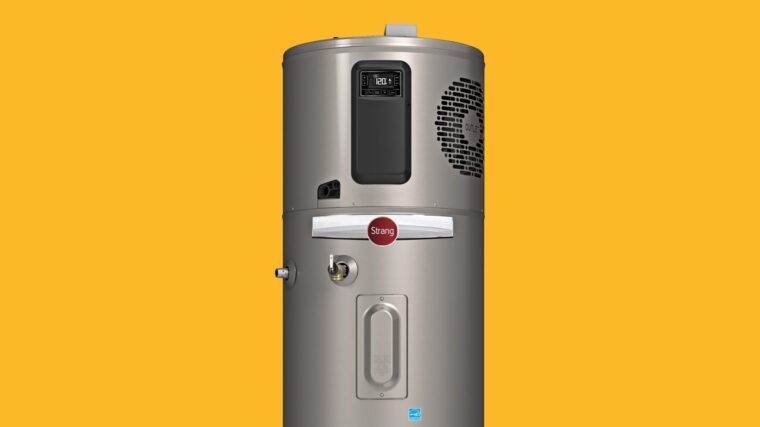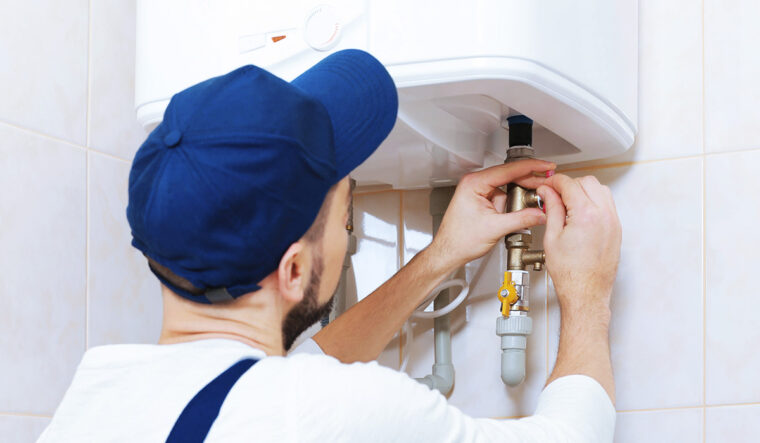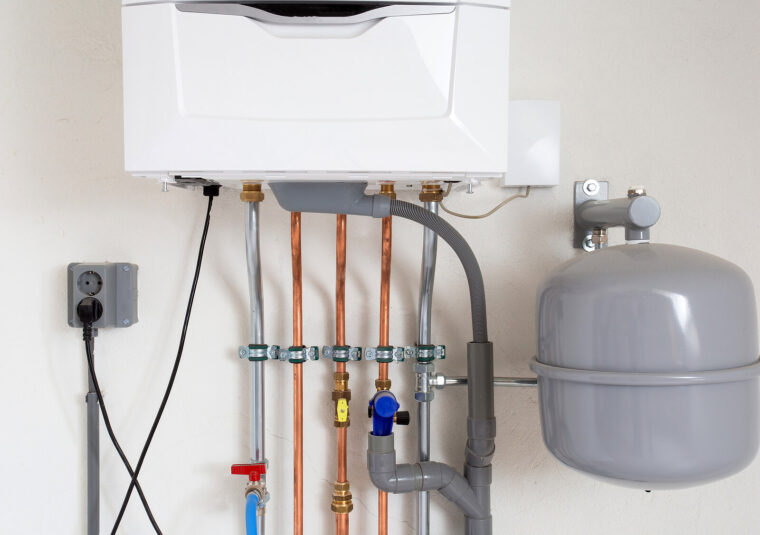If you’re like many average homeowners, you may have an older heating system that’s seen better days.
But, heating systems can be tricky to operate. Thankfully with a few simple heater safety tips, you can keep yourself and your loved ones warm all winter long.
Continue reading for some professional advice on how to get the most out of your heater this season.
Speaking of heater safety tips, be sure to click here if you want to learn how to prevent heater explosions in your home.
Six of the best electric water heater safety tips for homeowners
Here are some invaluable electric heater safety tips that every homeowner should know:
Safety tip #1 —Get your heater inspected and serviced by a professional every year

A professional inspection and service can help to ensure that your heater is running efficiently and safely. Here are some reasons to get your heater inspected and serviced by a professional every year:
- To ensure safety: A professional can check for any potential safety hazards, such as a cracked heat exchanger.
- To prevent breakdowns: Regular maintenance can help to prevent costly repairs or replacements down the road.
- To improve efficiency: A well-maintained heater will run more efficiently, saving you money on your energy bills.
- To extend the life of your heater: With proper care, your heater will last longer and provide years of reliable use.
Safety tip #2 — Keep combustible materials, like curtains and furniture, at least three feet away from the heater
One of the most important things to remember is to keep combustible materials, like curtains and furniture, a minimum three feet away from the heater. This will help to prevent a fire from starting if the material should happen to come into contact with the heat.
In addition, it’s also a good idea to have your heater serviced by a professional on a regular basis. This will help to ensure that it is operating efficiently and safely.
Safety tip #3 — Make sure the heater is on a stable surface and not near water
Heating units are a great way to stay warm in the winter, but it’s important to use them safely. Make sure the heating unit is on a stable surface so it doesn’t tip over and start a fire.
Also, keep it away from water sources like sinks and bathtubs. If the heater does come into contact with water, it could cause an electrical shock.
Finally, don’t leave the heater on when you’re not home. This could be a fire hazard if something were to go wrong.
Safety tip #4 — Never leave children or pets unattended in the same room as a running heater

Another danger that homeowners should be aware of is leaving children or pets unattended in the same room as a running heater.
Even if the heater is out of reach, young children or curious pets can easily knock it over, causing a fire. In addition, touching a hot heater can cause severe burns.
To prevent these accidents, always turn off the heater when you leave the room, and make sure that any children or pets are supervised when the heater is on.
Safety tip #5 — Turn off the heater and evacuate the house immediately when you smell gas
When it comes to natural gas leaks, it’s always better to err on the side of caution. If you smell gas, the first thing you should do is turn off the heater and evacuate the house immediately. Gas leaks can be extremely dangerous, as gas is highly flammable and can explode if ignited.
Once you’re outside, call your gas provider and let them know what’s happening. They’ll be able to send someone out to check for leaks and make sure everything is safe.
In the meantime, try to stay calm and avoid using any electronics or appliances that could create a spark. A gas leak can be a scary situation, but following these simple steps will help ensure everyone stays safe.
Safety tip #6 — Close doors and windows when running the heater to keep warm air inside

Heating a living space can be expensive, especially if you live in a colder climate. One way to help reduce your heating costs is to close doors and windows when the heater is running. This helps to keep warm air inside and prevents it from escaping through cracks and gaps.
In addition, closing doors and windows helps to prevent drafts, which can make your home feel cooler than it actually is.
Of course, you always want to make sure that your home is well-ventilated to prevent condensation and mold growth.
Heater safety tips everyone should know — Final thoughts
Although electric heaters can be a great way to stay warm, they also come with some risks. It’s important to take precautions when using them in order to avoid fires or other accidents. Make sure you unplug your heater when you’re not using it, and contact a professional if there are any problems with your unit.
By following the simple safety tips mentioned above, you and your family can enjoy the benefits of electric heating without worrying about potential dangers.
